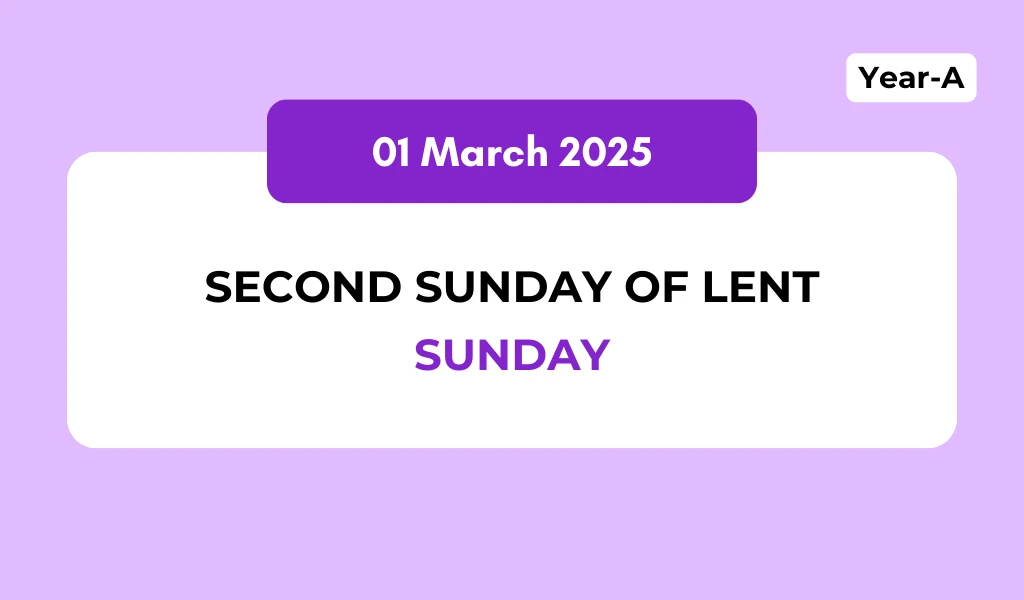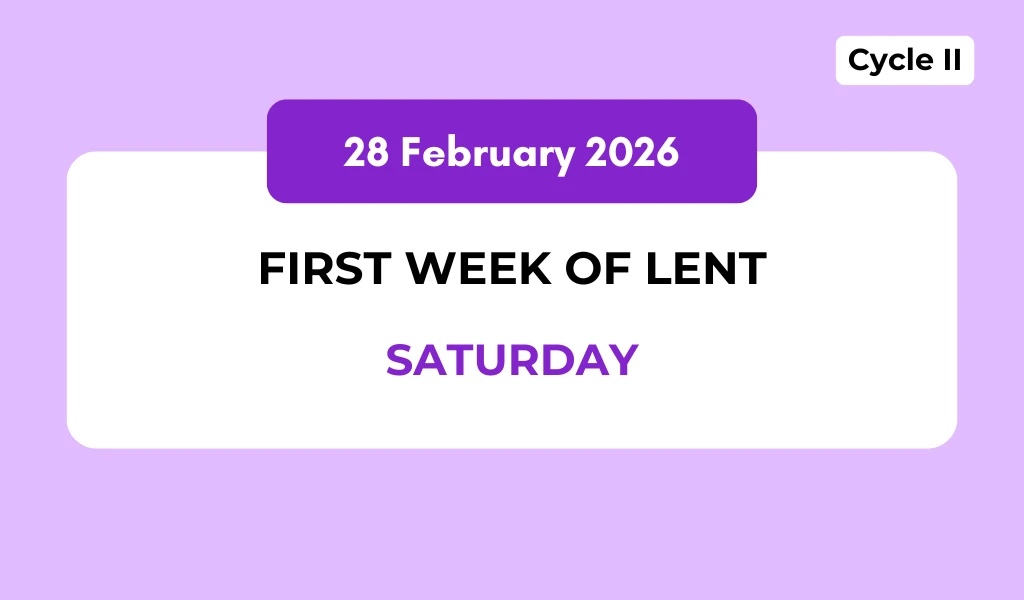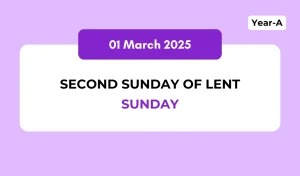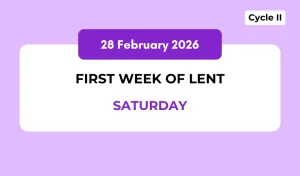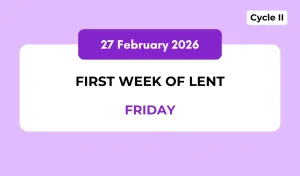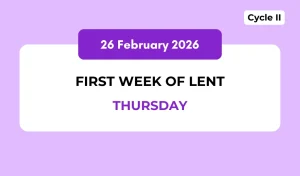Catholic Mass Readings and Reflection July 15, 2025
Tuesday – 15th Week in Ordinary Time
15th July 2025 (Tuesday)
Psalter: Week 3
Readings of the Day
First Reading: Exodus 2:1-15a
In those days: A man from the house of Levi went and took as his wife a Levite woman. The woman conceived and bore a son, and when she saw that he was a fine child, she hid him for three months. When she could hide him no longer, she took for him a basket made of bulrushes and daubed it with bitumen and pitch. She put the child in it and placed it among the reeds by the river bank. And his sister stood at a distance, to know what would be done to him. Now the daughter of Pharaoh came down to bathe at the river, while her young women walked beside the river. She saw the basket among the reeds and sent her servant woman, and she took it. When she opened it, she saw the child, and behold, the baby was crying. She took pity on him and said, “This is one of the Hebrews’ children.” Then his sister said to Pharaoh’s daughter, “Shall I go and call you a nurse from the Hebrew women to nurse the child for you?” And Pharaoh’s daughter said to her, “Go.” So the girl went and called the child’s mother. And Pharaoh’s daughter said to her, “Take this child away and nurse him for me, and I will give you your wages.” So the woman took the child and nursed him. When the child grew older, she brought him to Pharaoh’s daughter, and he became her son. She named him Moses, “Because,” she said, “I drew him out of the water.” One day, when Moses had grown up, he went out to his people and looked on their burdens, and he saw an Egyptian beating a Hebrew, one of his people. He looked this way and that, and seeing no one, he struck down the Egyptian and hid him in the sand. When he went out the next day, behold, two Hebrews were struggling together. And he said to the man in the wrong, “Why do you strike your companion?” He answered, “Who made you a prince and a judge over us? Do you mean to kill me as you killed the Egyptian?” Then Moses was afraid, and thought, “Surely the thing is known.” When Pharaoh heard of it, he sought to kill Moses. But Moses fled from Pharaoh and stayed in the land of Midian.
Psalm 69:3, 14, 30-31, 33-34 (R. see 33)
R/. You who are poor, seek God and your heart will revive.
Gospel Acclamation
V/. Alleluia
R/. Alleluia
V/. Today, harden not your hearts, but listen to the voice of the Lord.
R/. Alleluia
Gospel: Matthew 11:20-24
At that time: Jesus began to denounce the cities where most of his mighty works had been done, because they did not repent. “Woe to you, Chorazin! Woe to you, Bethsaida! For if the mighty works done in you had been done in Tyre and Sidon, they would have repented long ago in sackcloth and ashes. But I tell you, it will be more bearable on the day of judgment for Tyre and Sidon than for you. And you, Capernaum, will you be exalted to heaven? You will be brought down to Hades. For if the mighty works done in you had been done in Sodom, it would have remained until this day. But I tell you that it will be more tolerable on the day of judgment for the land of Sodom than for you.”
Daily Gospel Reflection
Tuesday – 15th Week in Ordinary Time
Main Point: The greatness of faith is not measured by the quantity of religious knowledge or the number of favours received. Only the quality of receptivity and change of life is the deciding factor
1. In the gospel, Jesus sternly denounces the cities of Corazin, Bethsaida and Capernaum. He pronounces woe to them. Interestingly, it is in these cities where he worked most of his mighty works. But they failed to be receptive and cooperative to God’s grace.
2. They are reproachable and culpable because they remained unrepentant, self-righteous, arrogant and seeking self-glory. They also rejected Jesus’ earnest call for repentance. In their pride and self-righteousness, they refused to see and accept their wrongdoing and infidelity.
3. They failed to seek God’s glory. Instead, they took pride and glorified themselves in their history, tradition, religion, Scripture, Law, knowledge, progress, etc. They failed to be conscious of God’s ways and mighty intervention in their history through the prophets, as well as their present story through Jesus.
4. The story in the first reading from Exodus of Moses, whom they venerate so much, is a clear example of God’s benevolent inception into their life. God’s plan of salvation and His way of execution are beyond human comprehension but are always marvellous.
5. Baby Moses was protected despite Pharaoh’s law of casting into the Nile every male Hebrew child. He was saved and adopted by Pharaoh’s daughter herself. The boy’s mother herself was called to nurse the growing child.
6. He grew up in the palace. But he killed an Egyptian who wronged a Hebrew. As the Pharaoh, who knew this murder sought to kill Moses, he had to flee. Later, his story would continue, a story that shows the incomprehensible ways of God’s working. The problem with the Jews was that their great sacred history had no impact and change on their present story.
My Practice: It is not the greatness of religion or history that makes a believer great. Rather, it is how one lives what one believes and inherits

